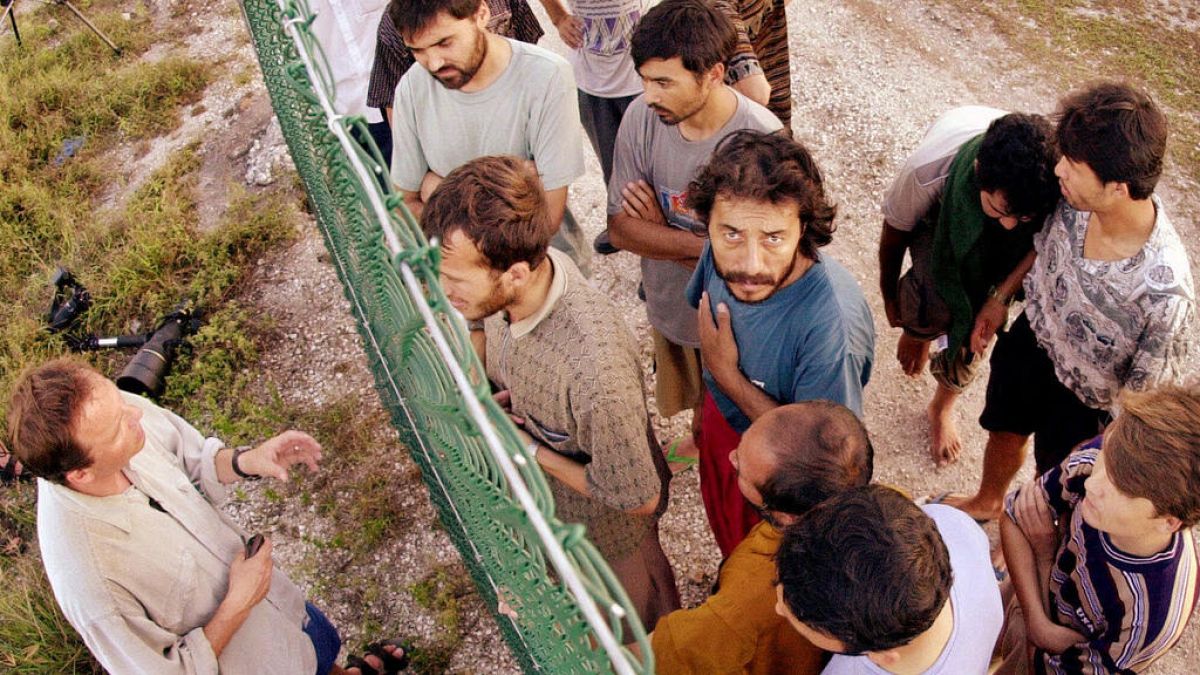In this article, two asylum seekers who have firsthand experience of Australia’s brutal offshore migrant processing centres, Behrouz Boochani and Zaiki Haidari, share their stories and caution European leaders against adopting similar policies. Boochani, a Kurdish-Iranian journalist who spent four years on Manus Island, describes the inhumane treatment and tragedy that asylum seekers faced in these centres, noting the separation from families, mental and physical damage, and deaths that occurred. He warns against replicating this system, which has been condemned by the International Criminal Court as cruel and degrading.
European countries are considering implementing offshore processing of asylum claims, inspired by Australia’s model. However, experts like Catherine Woollard from the European Council on Refugees and Exiles warn that these “fantasy options” rarely work and can lead to immense suffering for asylum seekers. Various European nations, including Austria, have expressed interest in adopting similar policies, despite the failures of previous attempts such as the UK-Rwanda deal, which was deemed unlawful by the Supreme Court.
Behrouz Boochani, who recently visited Austria, where anti-immigrant sentiment is high, highlights how Australia has exported not only its offshore detention system but also its language and rhetoric. He emphasizes the harm caused by such policies, urging against their adoption. Zaiki Haidari, a refugee rights campaigner, recounts his own traumatic experience in Australian detention centers and the pain endured by asylum seekers subjected to these harsh policies.
The article details the Australian government’s offshore processing centers, such as those on Manus Island and Nauru, which have been criticized for their harsh conditions and long-term detention of asylum seekers. Behrouz Boochani and Zaiki Haidari share their personal experiences of the dehumanizing treatment they faced in these facilities, with Haidari witnessing a friend self-immolating due to the despair caused by their situation.
Despite their own experiences, both Boochani and Haidari stress the need for humane treatment of asylum seekers and warn against replicating Australia’s harsh policies. They highlight the mental and emotional toll that such systems can take on individuals and families, emphasizing the importance of understanding the full impact of these policies. As European countries consider adopting similar offshore processing models, these voices from firsthand witnesses serve as a crucial reminder of the human cost of such approaches.
In conclusion, the testimonies of asylum seekers like Behrouz Boochani and Zaiki Haidari shed light on the devastating effects of Australia’s offshore processing centers and serve as a warning to European leaders considering similar policies. These firsthand accounts underscore the importance of prioritizing human rights and humane treatment of asylum seekers, rather than adopting harsh and dehumanizing measures. As the debate over offshore processing continues, it is essential to listen to the voices of those directly impacted and learn from their experiences to ensure a more compassionate and just approach to migration policies.










